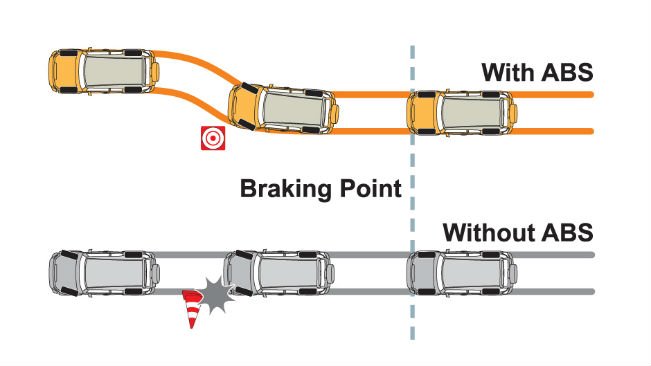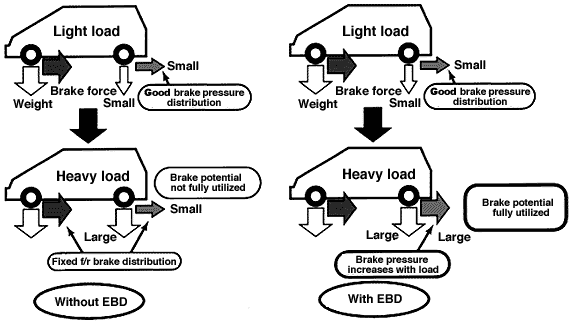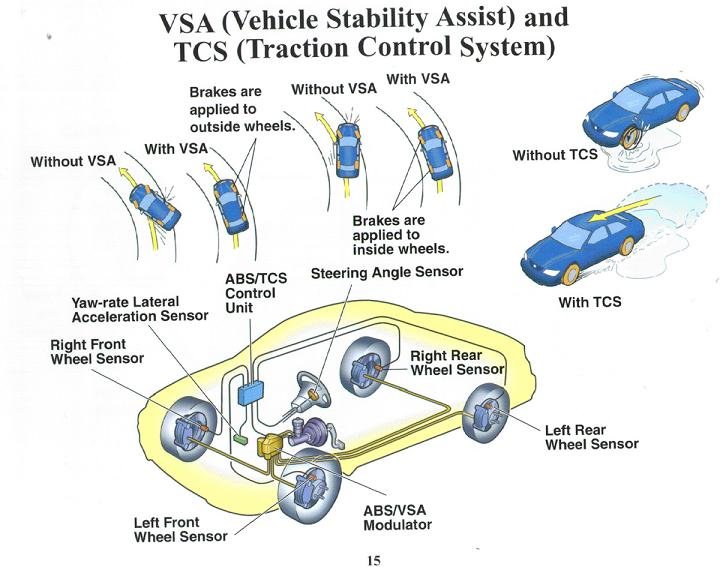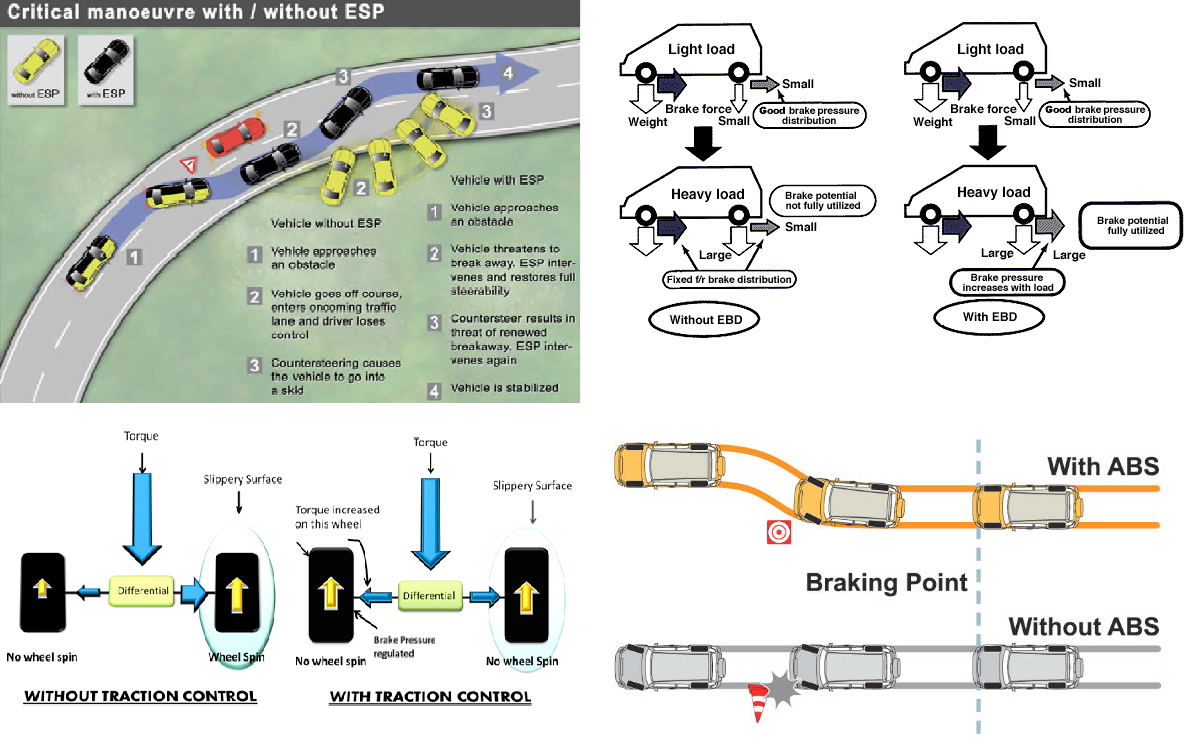Newer cars have a lot of safety features in place to prevent accidents and keep the driver and the passenger safe. These are some of the terms you might have heard that your car would have. ABS (Anti-lock braking system), EBD (Electronic Brake Distribution), ESP (Electronic Stability Program), and TCS (Traction Control System) are the active safety systems. An active safety system prevents you from getting into an accident. In this article, we will explain in detail what is ABS & EBD & ESP & TCS how they work and what are their benefits. There are other safety features also like airbags, ADAS and more. But with these safety features in your car, the chances of an accident are reduced.
ABS (Anti-Lock Braking System)
As the name says it avoids the wheels locking while applying the brake. It avoids the skidding of wheels and helps the automobile to stay on track. Also allows the driver to have steering control.
EBD (Electronic Brakeforce Distribution) is always paired with ABS. It is used to distribute the braking force equally on all four wheels, depending on the wheel speed and engine speed.
ESP (Electronic Stability Program) is a computerized technology that improves a vehicle’s stability by detecting and reducing the loss of traction (skidding).
TCS (Traction control system) is a part of ESP, it prevents loss of traction on bad road conditions, by braking or cutting power to that wheel.
Car Safety Features in Detail
Let’s see each car’s safety features in detail.
ABS (Anti-Lock Braking System)

In 2019 ABS with EBD was made compulsory in all cars and two-wheelers. It is most helpful on slippery roads where you have less grip if control is lost ABS will come into play and it will keep your car straight and it will avoid skidding of your tyres, locking of wheels and giving the driver control over the steering. It will also reduce your stopping distance, however, in the snow-covered area, it will increase the stopping distance but will keep the car straight line. However, it works when you apply emergency brakes only.
Courtesy YouTube channel: Mazda Australia
EBD (Electronic Brakeforce distribution)
EBD can apply more or less braking pressure to each wheel to maximize stopping power whilst maintaining vehicular control. It also locks the brake if the load on the tyres are not even. When a car has EBD it reduces the brakeforce to the tire with less load to avoid skidding and locking of that wheel. EBD senses which tyre has more load or speed compared to others to give brakeforce accordingly.

Courtesy YouTube channel: Mazda Australia
ESP (Electronic Stability Program)

Your vehicle may have an alternate system. Like ESC (Electronic stability control), VSA (vehicle stability assist), DSC (dynamic stability control), and VDC (vehicle dynamic control). These all work the same, they just have different names to it. The purpose of this system is to improve stability in a dangerous situation. If tires lose control and you tend to steer more and lose control ESP comes into play and avoids extra steering and applies brakes to keep the car in the driver’s intended path. It is mostly to help you in turns and corners whereas ABS and EBD will help you in a straight line but are not efficient on turns. It first cuts power and applies individual brakes to give the driver full control and void slide, it reacts better than any human ever could.
TCS (Traction control system)


It is a part of ESP. It works where you need grip to climb a slippery hill and it cannot be done with TCS off. When the road conditions aren’t good enough for proper traction and the wheels start slipping, the TCS senses the wheel slip and reduces engine power or applies brakes to stop it. If you have Traction control on your car you can have a proper grip to accelerate in any condition.
Courtesy YouTube channel: FIFTH GEAR



4 Replies to “ABS & EBD & ESP & TCS”